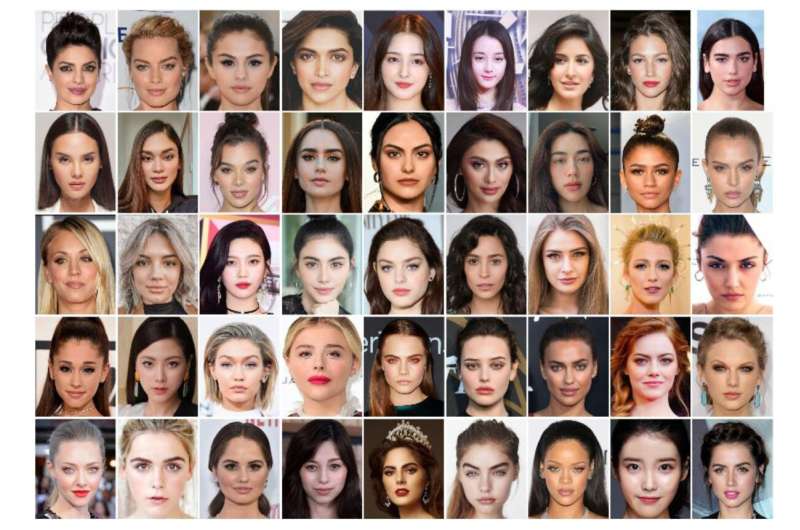Model can predict how humans perceive attractiveness in different faces with high accuracy

Past psychology and neuroscience studies have often investigated how humans perceive different faces during social interactions. Some studies suggest that on average humans tend to find some faces more attractive than others, thus their ratings for specific faces can be similar.
Recently, computer scientists have been trying to use machine learning to predict how attractive humans would typically find different faces. While some of these models achieved promising results, not all of them can generalize well across different images.
Researchers at Islamic Azad University in Tehran have created a new model to evaluate the facial attractiveness of different human faces in images. This model, introduced in the International Journal of Cognitive Computing in Engineering, was found to predict the average attractiveness scores that humans gave to different faces with remarkable accuracy.
“This paper presents a novel approach to the problem of predicting facial attractiveness using machine learning and computer vision techniques,” Mohammad Karimi Moridani, Nahal Jamiee and Shaghayegh Saghafi wrote in their paper. “Our main objective is to investigate whether an intelligent machine can learn and accurately predict facial attractiveness based on objective rules in facial features.”
Moridani, Jamiee and Saghafi initially set out to test different machine learning approaches on the task of predicting how humans would rate the attractiveness of faces. To do this, they collected a series of datasets containing faces of different women and the corresponding average attractiveness rankings given by human subjects.
The faces in the researchers’ dataset were gathered from a documentary-style YouTube video called “The Top 100 Most Beautiful Women Faces in the World 2020,” which featured women from different ethnic backgrounds. In addition, the team used the Lab London Database, a dataset compiled by De Bruine and his colleagues that includes the faces of both men and women between 18 and 54 years old.
Using these datasets, Moridani, Jamiee and Saghafi trained different models, including one based on k-nearest neighbors (KNN) and one based on support vector regression (SVR). They then tested the ability of these approaches to estimate the attractiveness scores that humans might give to different faces.
“The model used facial feature parameters, such as symmetry and proportion, as input to determine the attractiveness ranking as output,” Moridani, Jamiee and Saghafi explained in their paper.
“We evaluated the performance of our trained predictor model using several metrics, including the coefficient of determination (R2), root-mean-square error (RMSE), and mean absolute percentage error (MAPE). The best performance was achieved using the KNN algorithm during the testing phase, with R2=0.9902, RMSE=0.0056, and MAPE=0.0856. It indicated a significant improvement in the accuracy of facial attractiveness prediction compared to previous studies.”
The team found that the KNN algorithm yielded the best predictions of facial attractiveness, as perceived by humans. Remarkably, their KNN-based model was found to outperform other approaches for estimating the facial attractiveness of human faces introduced in previous papers.
“In comparison to previous studies in this area, our approach shows significant improvement in accuracy, with a correlation coefficient higher than that of human ratings,” Moridani, Jamiee and Saghafi added in their paper. “This work has significant implications for the fields of psychology, neuroscience, and computer science, as it provides a new perspective on the concept of facial attractiveness and its quantification using machine learning.”
More information:
Mohammad Karimi Moridani et al, Human-like evaluation by facial attractiveness intelligent machine, International Journal of Cognitive Computing in Engineering (2023). DOI: 10.1016/j.ijcce.2023.04.001
© 2023 Science X Network
Citation:
Model can predict how humans perceive attractiveness in different faces with high accuracy (2023, May 1)
retrieved 1 May 2023
from https://techxplore.com/news/2023-04-humans-high-accuracy.html
This document is subject to copyright. Apart from any fair dealing for the purpose of private study or research, no
part may be reproduced without the written permission. The content is provided for information purposes only.
For all the latest Technology News Click Here
For the latest news and updates, follow us on Google News.
